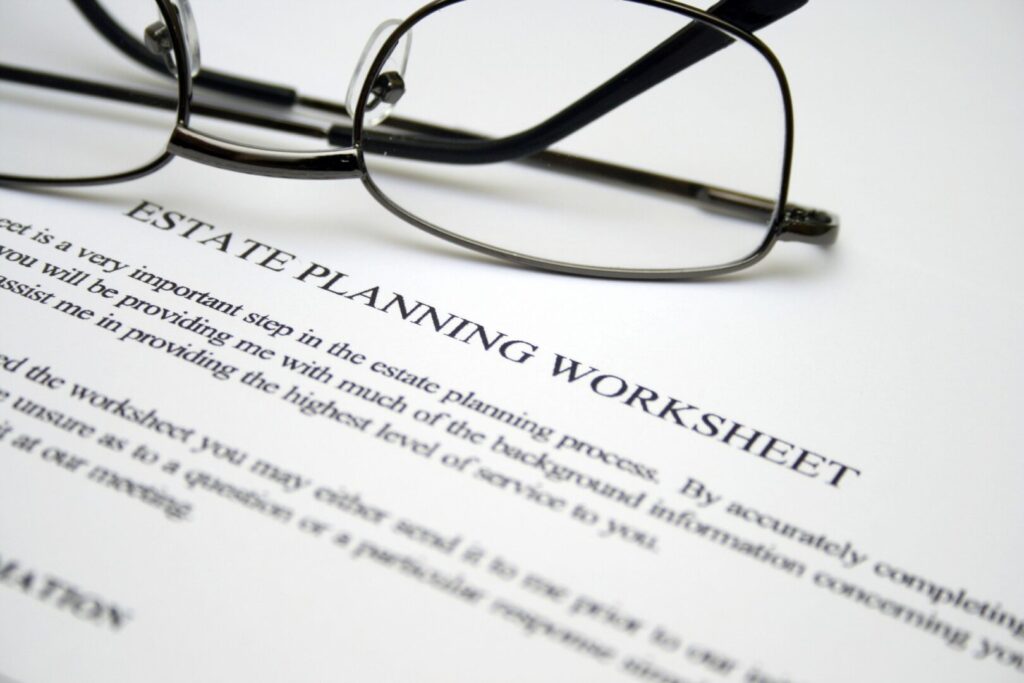When a loved one passes, you’ll need to get their affairs sorted. Learn how to prepare for estate planning and administration here.
A shocking number of people fail to prepare for the legal ramifications of their passing. In fact, almost 70% of Americans don’t even have a valid will!
If you’ve ever seen a court handle a probate process without a will, you can appreciate the importance of estate planning and administration. When a loved one dies, the bereaved must be able to focus on mourning and healing. Without effective estate planning, they might have to jump into legal battles or handle complicated financial negotiations instead.
What are the most important steps to take to prepare for estate planning and administration? Read on to learn all about the most vital things to do to sort out the affairs of a loved one before or after their passing.
What Is Estate Planning?
Some people hear the word “estate” and assume that estate planning is only important for wealthy people. However, estate planning is important for everyone, regardless of financial status.
During the estate planning process, people make vital decisions about where their assets and debts should go. They decide who should be trusted with their children when they pass. They make important choices about whether to donate money and how to handle their digital accounts.
Without careful estate planning, bereaved family members must make these decisions independently. This can be a great burden, but it can also fail to achieve the deceased’s wishes. Even if family members do their best to guess what someone would have wanted, they will never know for sure.
Inventory Assets and Debts
Before someone passes on, take careful inventory of all of their assets and debts. If you are helping a loved one manage their estate planning, you might want to start by having them list all the valuable objects in their home.
This includes the home itself, along with valuable devices and jewelry. It can include things like art, tools, and vehicles.
In some cases, people will want specific family members or loved ones to receive specific objects. That goes double for objects with sentimental value.
However, in other cases, people just need to know how valuable their possessions are so that they can plan how to distribute them to their loved ones.
Rather than walking from room to room, it might make more sense to take pictures of everything in the house. Then, you can sit down with your loved one and make a plan for what to do with these valuable objects.
After that, your loved one will need to make a comprehensive list of all of their non-physical assets. That includes things like bank accounts, life insurance policies, and health insurance. In some cases, it can also include things like ownership in businesses or investments.
With that done, it is also vital to create a comprehensive list of debts. If your loved one still has some debts to pay off when they die, the assets of their estate may go toward paying off those debts before proceeding to family members and other beneficiaries.
It is crucial to calculate the dollar value of all three of these lists. That way, you will know the value of relevant assets after subtracting debts.
The Importance of Writing a Will
More than anything else, it is important for your loved one to create a will before they pass. In this will, they can declare where they want all of their possessions and other assets to go when they pass.
In their will, your loved one will also decide who will execute their estate when they pass. It is vital that they find someone they can trust to carry out their wishes once they are no longer around to enforce them.
They can also state in this will who should have powers of attorney if they become incapacitated before their passing. This can include deciding who can make medical decisions about whether or not to resuscitate them if they can no longer make that choice for themselves.
Consider Charitable Donations
During the estate planning process, your loved one can also decide whether or not to donate some of their assets to charitable causes. Many people value finding ways to give back as they near the end of their lives.
Find the Right Estate Attorney to Help
Of course, you will want the help of an experienced estate attorney on your side throughout this process. They can make sure that you and your loved one are aware of all of their options. They may also be a good choice for someone to execute the estate of your loved one once they pass.
Make Plans for Digital Accounts
These days, it is important for people to make decisions about what will be done with their digital accounts after they die. This has not always been part of the traditional estate planning process, so some people overlook it.
However, ensure your loved one is clear about what they want to have done with their social media accounts, email accounts, and other online accounts.
Find a Skilled Probate Attorney
Even before your loved one passes, it is important to find a probate attorney who will help with estate disbursement when the time comes. Managing the probate process includes making sure that estate funds go where the deceased intended. Your probate attorney will also help the relevant courts authenticate your loved one’s will.
Know How to Prepare for Estate Planning and Administration
Making the right preparations for estate planning and administration can help families avoid a long list of problems after the death of a loved one. It is more than worth investing the necessary time and effort to prepare the estate of a loved one so that there is no confusion when they pass. With the right estate planning, the bereaved can focus on mourning rather than figuring out how to handle assets and debts without any guidance.
Want to learn more about how you can find the best estate planning legal help for you? Contact us at Johnson Turner. We are waiting for your call.































